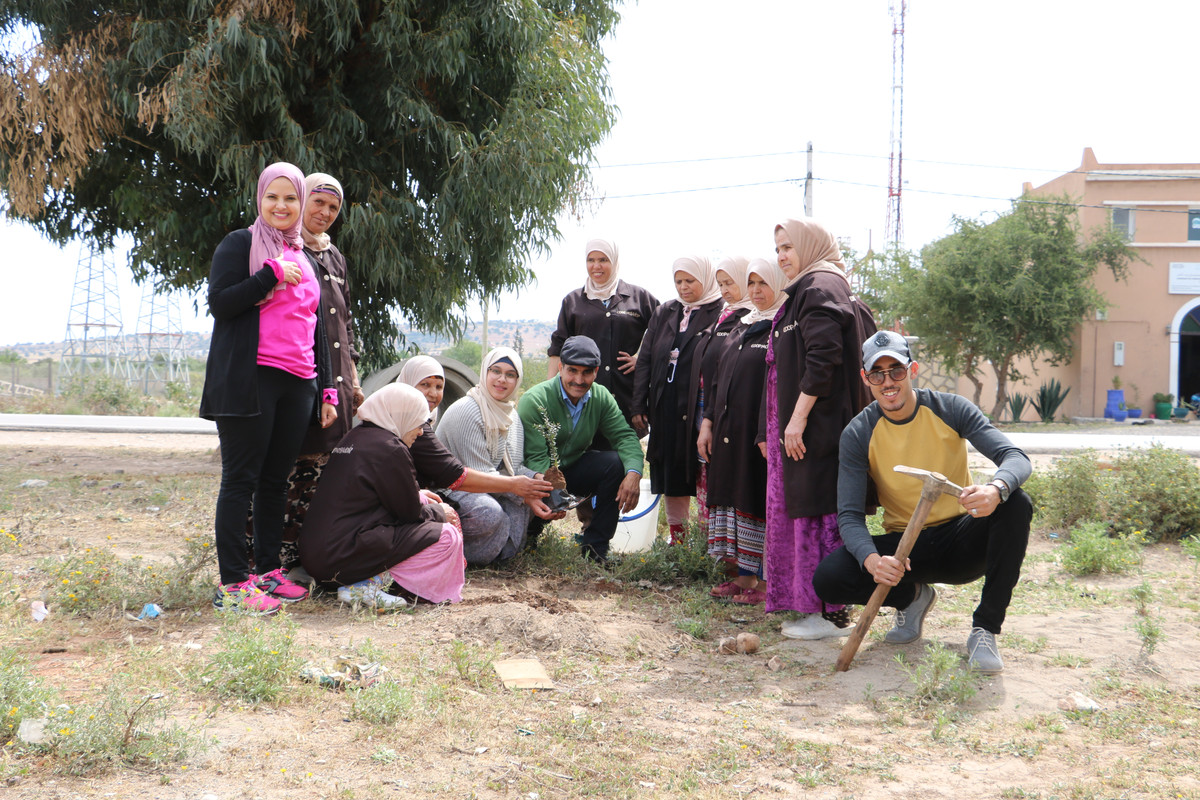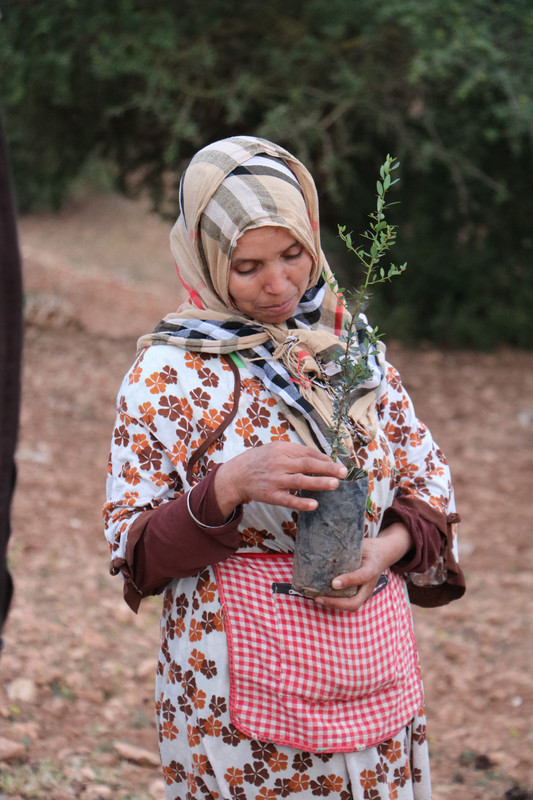High Atlas Foundation’s Partnerships Extend Argan Oil Industry Women’s Empowerment
The argan oil industry’s impact on rural empowerment is growing nationwide, in part, because of international demand on women’s cosmetics and pharmaceuticals. The National Initiative for Human Development (INDH) launched in Morocco in 2005, which aims to “reduce poverty, grow the economy, and strengthen the kingdom’s social fabric” through participatory development, directly contributes to that industry’s growth (Perry et al, 2019). Despite the 2011 Constitutional reforms and the 2004 Family Code (Moudawana) that reinforce INDH’s priority, particularly with rural agriculture, women’s lives in rural Morocco have not significantly changed because funding and oversight are not enough. Women (and men) in these communities need additional skills that begin with conversations about their goals.
Argan oil production in Morocco is female-driven – the domain of Amazigh women for centuries – so the economic growth should provide a better life for them. Research reveals their strength and resourcefulness, financially supporting themselves despite illiteracy and immobility (social and physical). However, these women are often exploited if they lack basic business skills. While involvement in INDH cooperatives does more than just boost income – increasing optimism and improving freedom of movement – there is not a definitive correlation between working and financial independence for them. Without education, particularly numeracy, women are less likely to control their earnings and more likely to be victimized. Similarly, men are more likely to support women in their endeavors if the men have their own financial goals. Investing in women’s education and numeracy while also helping men to set these financial goals was cited as “the only reliable predictor of men recognizing opportunities in the communities for women to improve their lives.”

This is where the High Atlas Foundation comes in. By engaging community members in conversations about their needs and finding out what they want for themselves, such financial goals are established, paving the way for more successful cooperatives, and providing the necessary mathematical, financial, and managerial skills through programs such as USAID’s Farmer-to-Farmer. HAF has also partnered with FRÉ skincare to empower women’s cooperatives and their communities in the Essaouira province (Marrakech-Safi region), where they have great potential to spread organic agricultural and processing practices, especially with argan.

Initiated in 2018 with the joint FRÉ-HAF planting of 2,000 argan trees for the 40-women Izouran cooperative of Essaouira’s Smimou municipality, this provided not only income and environmental benefits, but also training workshops and school supplies for their children (helping combat high dropout rates still pervasive in rural areas). FRÉ and HAF significantly expanded their sustainability initiative in 2019 by planting 2,600 argan trees with three additional women’s cooperatives in Essaouira and 13,000 argan seeds in an HAF community nursery in the Marrakech region. In 2020, this increased to 33,000 seeds that will eventually be transplanted to the women’s cooperatives’ properties. To successfully translate this partnership into more action, FRÉ and HAF are planning to help the cooperatives with FRÉ’s direct purchase and export of their argan cosmetic products. These actions will certainly have a very positive impact on the women’s economic level and also promote business expansion and create more job opportunities.
Perry, Wendy, O. Rappe, A. Boulhaoua, L. Hassan Loux, Y. Elhouss, H. Ait Ahssain, Z. Ait Barich, H. Akhiyat, T. Aznague, and S. Hraid. “Argan oil and the question of empowerment in rural Morocco.” The Journal of North African Studies, vol 24, no 5, 2019, pages 830-859.